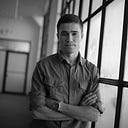Member-only story
Frozen Chosin as Seen from Quantico— “Make Peace or Die” Excerpt
An excerpt from my father’s memoir — Make Peace or Die: A Life of Service, Leadership, and Nightmares — in which he asks to be sent to war.
In November, 1951, Charles U. Daly was at Quantico training to lead a Marine rifle platoon and thinking the Korean War would be over before he got a chance to fight in it. Then “Frozen Chosin” happened…
The Boat Leaves Wednesday
June 1950–February 1951
“In war, as in prostitution, amateurs are often better than professionals.”
— Napoleon Bonaparte
On June 25, 1950, we got our national emergency.
At dawn that morning, the (North) Korean People’s Army surged over the 38th parallel into the South. This action was immediately condemned by an emergency session of the UN Security Council, a vote from which the Soviets abstained.
The Korean peninsula had been divided since the end of World War II under an agreement between the US and USSR with no consideration of the will of the Korean people. Before that, from 1910–1945, Korea was a colony of the Japanese Empire and suffered unimaginable atrocities ranging from forced labor and sex slavery to medical experimentation on human subjects. After World War II, North Korea was run by Kim Il Sung, who had been a charismatic resistance fighter during Japanese occupation. He used Soviet and Chinese subsidies to model a state on Stalin’s Russia, labor camps and all. The South, no bastion of democracy, was run by a corrupt and brutal puppet government that took America’s backing as license to pillage and deprive its people and massacre political opponents. The United States had adopted an official noninterference policy that gave the North reason to believe their invasion would be uncontested by South Korea’s mightiest ally.[i]
On June 30, five days after the North’s invasion of the South began, Truman sent American troops to support the South Koreans. On July 7, the UN passed Resolution 84, requesting member nations to join a “police action” on the Korean peninsula. Sixteen nations joined in, including ones with modest armies like Ethiopia and Turkey. General MacArthur, who had been serving as de facto emperor of Japan since the war’s end, was given command of UN forces. Unfortunately for the South Koreans, MacArthur’s army of the occupation were not the same men who won the…
